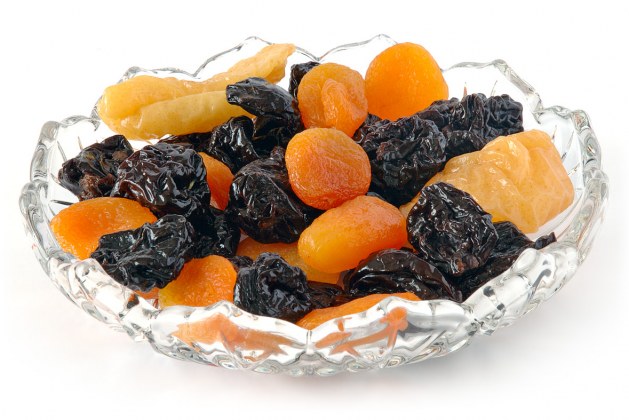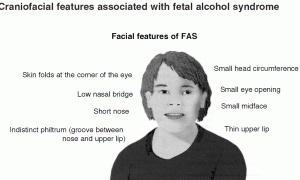
Planning your diet based on labels today is often like navigating an ocean voyage without a compass or nautical charts — almost impossible and definitely not wise.
Many people assume labels that shout non-fat, sugar-free and low-calorie are healthy. This is not necessary true. Jelly Beans are fat-free, but these sugar-laden treats are not “healthy”, especially if you consume them everyday. The following tips will help you spot foods disguised as healthy, and give you some suggestions for replacing these foods with better choices to manage your health and wellness.
Fruits and Vegetables
No one disputes that a wide variety of fresh fruits and vegetables are the foundation for a good eating plan. Unfortunately, canned vegetables often have a high-sodium content. Others contain trace amounts of metals and other non-food materials from the processing plant. Heavy metals build up in your body overtime, and eventually may damage your liver and kidneys.
Fresh fruit and vegetables that you buy in the grocery store — and even some produce stands — come from farms and orchards that use chemical fertilizers and pesticides. These chemicals could seep through the skin and end up on your plate. Always wash produce thoroughly and remove skin and peel before serving.
Organic fruits and vegetables certified to be free from pesticides and fertilizers are the best choice. If you cannot afford to buy organics, frozen foods are typically better options than canned or bottled foods. Check the label for additives like salt, sugar and chemicals.
To Soy or Not to Soy?
There is some debate about soy products — which are showing up everywhere in recent years. Soy milk, tofu, soy-burgers.
One problem with some soy products, soy milk for instance, is the thickening agents and stabilizers added to the soy base. Carrageenan is a common food thickening agent found in many foods labeled as healthy. Carrageenan is a chemical extract from seaweed so, many assume since it is from a natural food source it must be good for you.
There have been many reports of health issues attributed to carrageenan (sometimes spelled carrageen) consumption. One of the primary problems is that the seaweed is highly inflammatory. This leads to glucose intolerance, disruptions in normal insulin production and even accelerates Alzheimer’s, Parkinson’s and other chronic diseases in some people.
If you want to drink soy milk, choose a brand that does not contain added sugar, salt, and chemical flavorings — and avoid carrageenan. Soy options that have some healthy benefits are normally processed with traditional methods that do not have harmful additives, such as tempeh. Moderation is important if you decide to continue to add soy products to your diet.
Here’s a healthy beverage recipe:
As an alternative, vegetarians can make their own almond milk by soaking 1.5 cups of unprocessed almonds (not salted or roasted) in water overnight. Drain the almonds and discard soak water. Place almonds and 4 1/5 cups of fresh water in a blender and purée. Strain mixture through a cheese cloth funnel.
For a tasty healthy snack, add a small amount of organic honey to the solids and serve as a spread over whole wheat toast.
Movie and a Snack
Microwave popcorn is very popular today and many people assume that this low-calorie snack is much better for you than many other options. The truth is that many packaged popcorn products have chemicals like diacetyl and food flavorings containing diacetyl (FFCD).
OSHA issued food safety information that suggests FFCD causes severe respiratory problems and lung disease.
If you have a hankering for popcorn, pop your own with a small amount of non-hydrogenated oil and skip the margarine and salt. Add some salt-free spices like chili powder, garlic or pepper to give your snack a zesty flavor.
Power Snacks and Dried Fruit
Next time you reach for an energy bar, a bag of trail mix or a handful of dried fruit, check the label. Even though these snacks often contain protein and healthy grains, they also have extreme levels of sodium and sugar added. Some dried fruit contains sulfur.
Fresh organic fruits and nuts are far superior for improving or maintaining a healthy lifestyle.
Green Doesn’t Mean Lean
Spinach pasta and tomato tortillas sound healthier than the white-version. Sadly, most spinach bread products only contain enough spinach to create the look of something healthy. And while that pretty red appearance does a lot for decorating your holiday table, is isn’t a better choice than a traditional beef and bean wrapper. Compare the calorie count, nutritional values, and sugar and sodium content before you decide to go green and red with your bread and pasta.
The Bottom Line
Labels are a paper version of the television commercial. Skip the non-fat, sugar-free trap and read the nutritional label for all processed foods. If you find ingredients that you cannot pronounce, or don’t know what they are, put it back on the shelf.
Most processed food is less healthy for you than any meal you can make in your own kitchen — and you control the ingredients.
Know any other health foods that aren’t really healthy? Leave a comment and let us know.




Leave a comment
You must login or register to add a new comment.